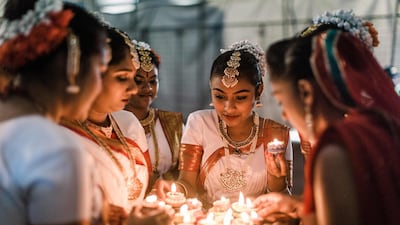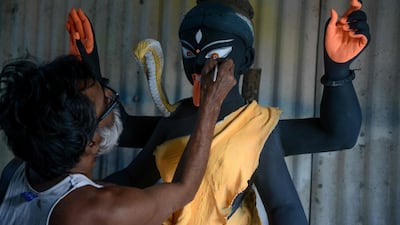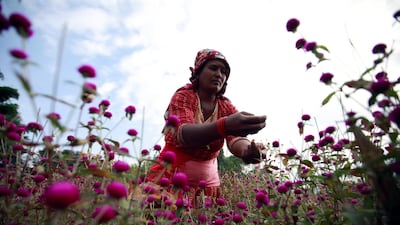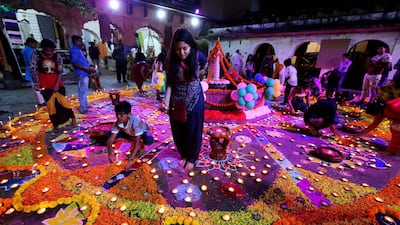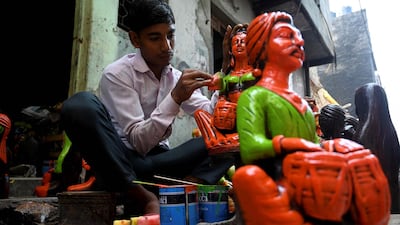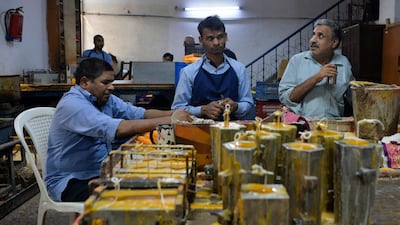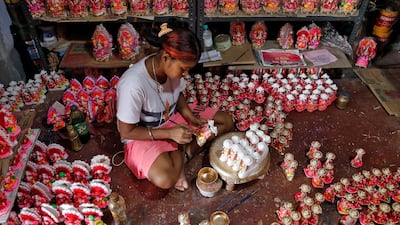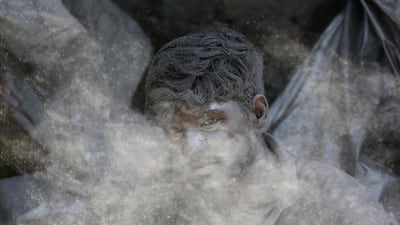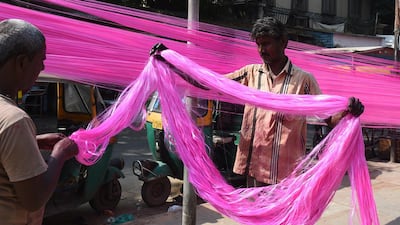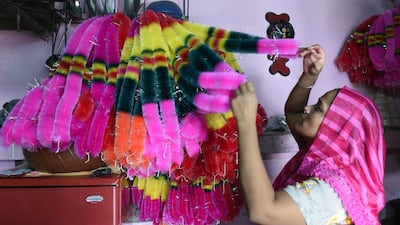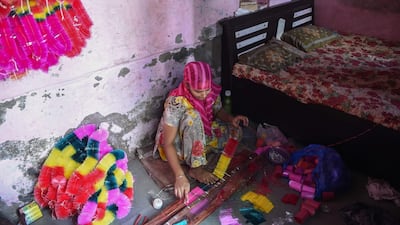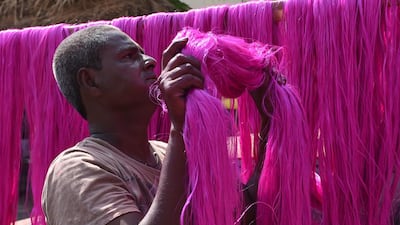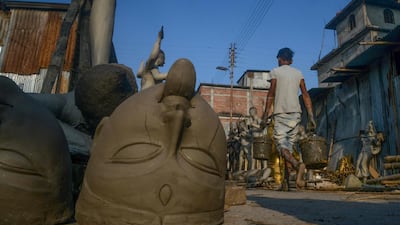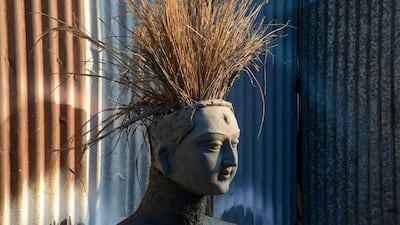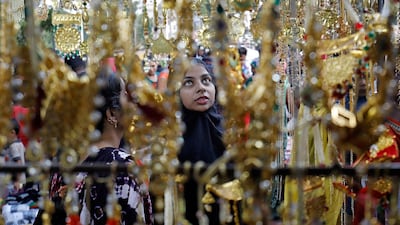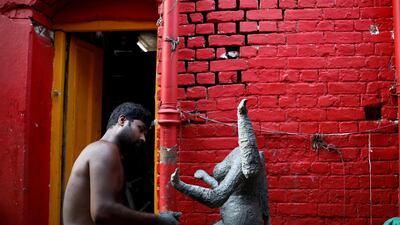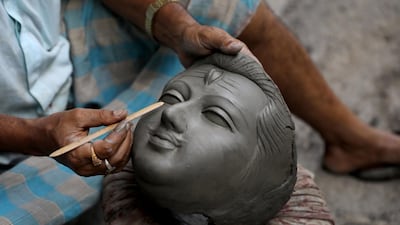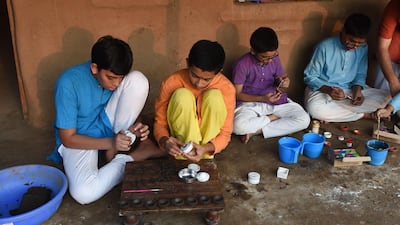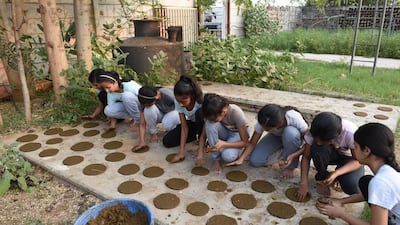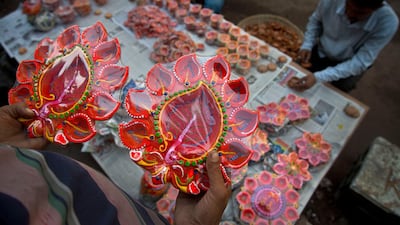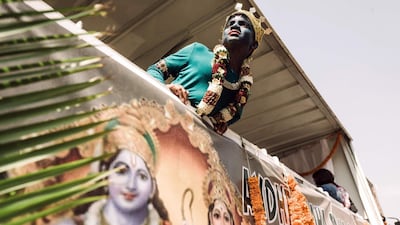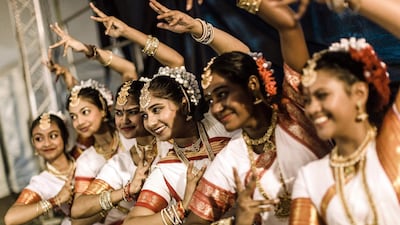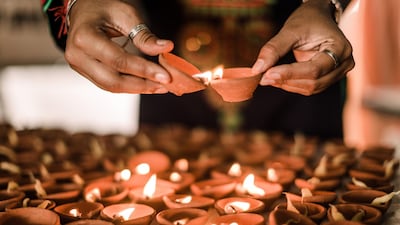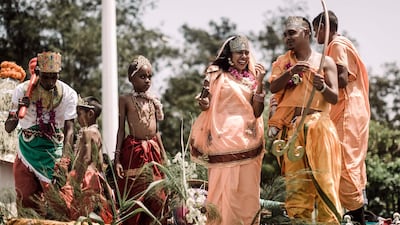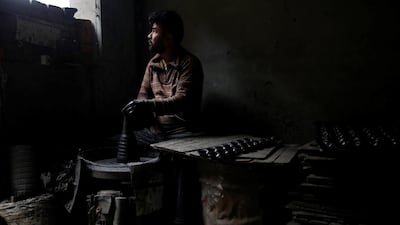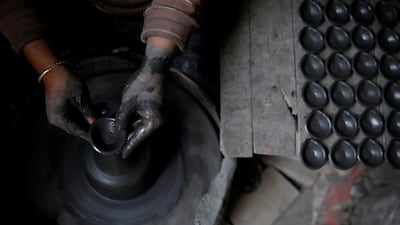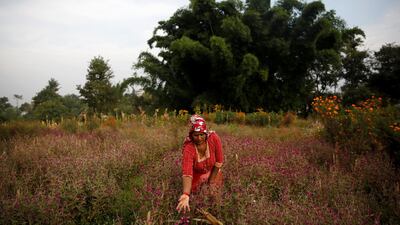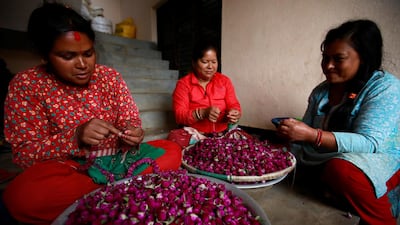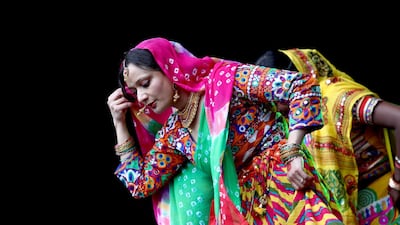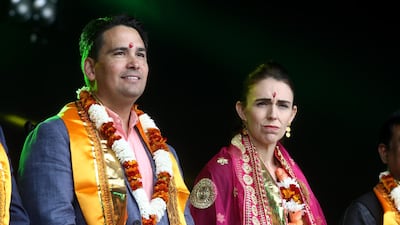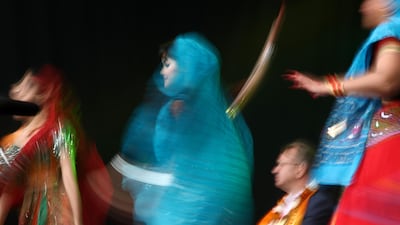Diwali or the Festival of Lights takes its name from the rows of oil lamps, electric lights or paper lanterns that decorate the homes, offices and public spaces of those who celebrate the holiday.
Indian schools in the UAE will be shut for two to three days next week to allow for celebrations.
The festival of happiness, prosperity and light is spread over five days and celebrated by Hindus, Sikhs and Buddhists around the world.
This year, the main day of Diwali falls on Sunday.
Many honour Lakshmi, the goddess of wealth during the festival. Legend has it that the goddess looks for homes where she will be welcomed, so people typically leave their windows and door open and light lamps in each room to invite her in.
Does the date change every year?
Diwali usually falls in October or November. The exact date changes every year because the Hindu calendar is lunar. Diwali is observed on the day of Amavasya or the new moon and marks the start of the Hindu New Year.
The main festival is on Sunday, but festivities begin on Friday, a day called Dhanteras.
Where does Diwali get its name?
The word Diwali is derived from the ancient language Sanskrit and refers to a series of lights.
There are several legends linked to its origin.
For most, it marks the day that the Hindu god Ram accompanied by his wife Sita and brother Lakshman returned to the kingdom of Ayodhya after his victory over the demon king Ravana.
It is said residents lit up the entire city with earthen lamps or diyas to welcome their king.
The festival is also celebrated as the triumph of light over darkness and good over evil.
Others celebrate Diwali as the marriage of Lakshmi, the goddess of wealth, to Lord Vishnu, one of Hinduism’s main deities and who is known as the protector of the universe.

How do people celebrate in the UAE and around the world?
Days before the festival, Indians who celebrate clean out their homes and hang up lights on their balconies and window sills. They then invite friends and family over to celebrate.
People wear new clothes, bathe using oils, prepare festive meals, worship the goddess Lakshmi, light up their homes and set off fireworks at night.
The tradition of exchanging of gifts, sweets and dried fruits, is popular in the UAE, India and in other parts of the world where the festival is celebrated.
The floor and entrance of houses is decorated with flowers and intricate patterns called rangoli, a mixture of coloured powders, pastes, flowers and dyed rice.
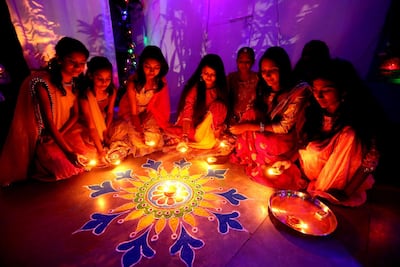
What happens over the five days?
On the first day of Diwali, Dhanteras, it is considered auspicious and a sign of good luck to buy gold, silver objects or kitchen utensils.
It indicates the start of a new financial year with businesses opening a new book of accounts.
Any new business ventures typically start on this day.
The second day is sometimes called Chhoti Diwali or Small Diwali when elders insist all family members should wake up early and bathe using oils.
The third day, on Sunday, is the main day of the festival, is when people gather for Lakshmi puja, a prayer for happiness and prosperity to the goddess of wealth.
The fourth day marks the first day of the New Year when gifts and sweets are exchanged among family and friends.
Many celebrate this as annakut, a word that includes anna meaning grain. Large quantities of food are prepared at home or offered in temples.
The fifth and last day is called bhai dooj to rejoice the bond between brothers and sisters.

Foods to eat:
Sweets, savoury snacks and food are essential to the celebrations.
Some communities in the UAE and India prepare more than 50 varieties of food for Diwali that include desserts, samosas or other deep fried pastries and vegetarian curries.
The most popular are the sweets or mithai, preparations with condensed milk made at home or purchased in shops.
Well-known sweets range from kaju katli or almond slices and ball-shaped laddoos of cardamom, gram flour with variations that include dry fruits.
The fudge-like sweets are often coated with a thin silver leaf.
What is planned in the UAE?
Firework displays and concerts have been announced over the weekend by malls and developers across the Emirates featuring Bollywood singers and actors.
